For parents, the decision to move overseas is often first seen in the context of their children. After learning that the schools will be excellent and the country safe, considerations about how the move will affect them emotionally and psychologically often arise. For children of a formative adolescent age, the question is certainly a valid one. Read More

Concordia Chronicle
Concordia Shanghai Newsroom
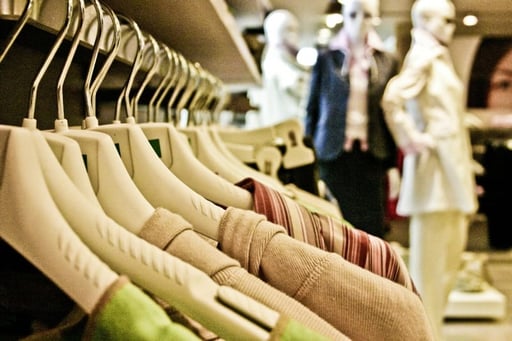
For many, the prospect of shopping elicits one of two images. The first and more pleasant is that of casually browsing goods in a mall or department store and searching out a deal or coming across something needed – generally a happy experience for those that enjoy the process. The second is of crowded stores, poor service and a feeling of futility when sought-after products are not found. Read More

Most people experience some degree of homesickness (culture shock) in the time after they settle into their new home in Shanghai. In the first few months, the feeling is usually lost among the new and exciting experiences that people encounter everyday after an international relocation. If, over time, you or your family seem to be missing home more than usual, here are some tips for lessening the impact of homesickness. Read More
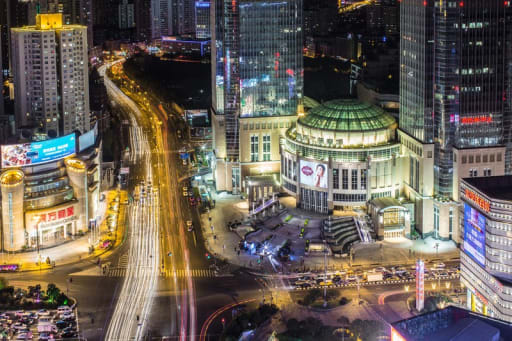
The area known as Xujiahui sits on the one square mile site of Saint Ignatius Cathedral established with land donated by the family of Xu Guangxi whose name is parent to Xujiahui. Xu was famous for his conversion to Catholicism and support of the church. At its height, the complex was home to orphanages, schools, monasteries, libraries, and an observatory. Its establishment led to an effective expansion of the size of the French Concession as... Read More
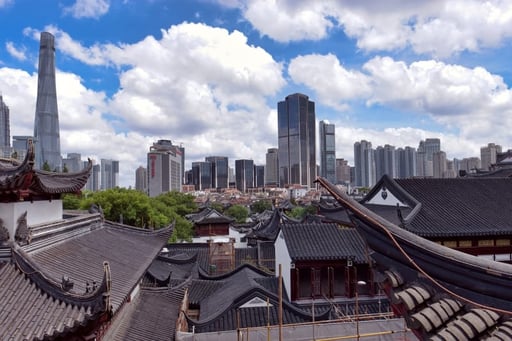
Every city has a few important questions about them that define what they are broadly speaking. If you can answer those questions with authority, then the initial decisions you make about where you want to live will be based more soundly on your preferences and after your move, your expectations about what you expected will be met more effectively. For Shanghai, the first thing you need to know is that in many ways it’s not one city but two. Read More
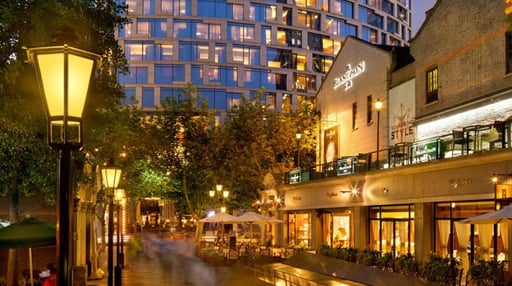
The area now known as Xintiandi was one of the poorest in Shanghai before Hong Kong-based property developers Shui On Group and American architect Ben Wood rejuvenated the area by razing it to the ground and rebuilding with a design generally reflecting the shikumen-style lane houses originally built on the site. Read More
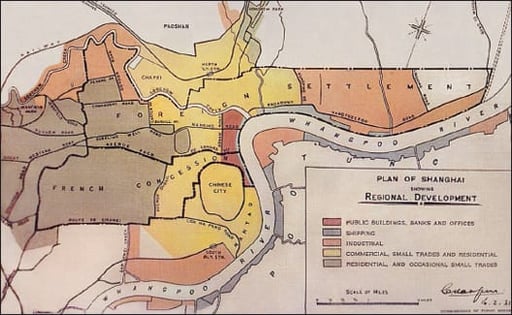
Without getting into too many details, what is referred to today as the French Concession is really a land grant of 66 hectares made by the acting governor of Shanghai Lin Kouei for a French Settlement in 1849. This occurred in the backdrop of what is referred to as the First Opium War that saw the British Empire and Qing Dynasty forces have a series of military engagements over conflicting viewpoints on diplomatic relations, trade, and the... Read More
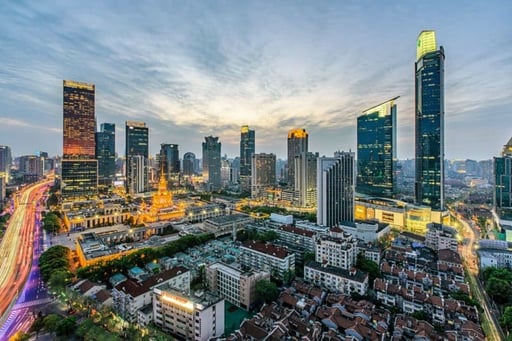
Jing'an If you were asked to name the the pulsing retail center of the Chinese universe, Jing'an would be first on your lips. In the whole country, no other street is quite like Nanjing West Road. That said, the area buzzes with life and vitality. At 7.62 square kilometers it is one of Shanghai’s smallest districts and one of its most densely populated with about 40,000 people per square kilometer. One of the oldest luxury serviced apartments... Read More
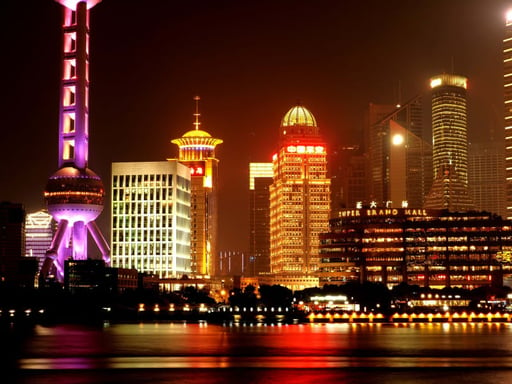
Lujiazui was purpose-built to be the financial center of China on a small peninsula extending into the Huangpu River directly across from the old financial center of the city on the Bund. As recent as 1992, the area was a collection of factories, low-rise buildings and even some rice paddies. Read More

While it is estimated that approximately 100 million Chinese are fluent in English, that is only about 10% of the population of China and while a fraction of those may be involved in the service or retail industry the vast majority of the people you meet in everyday life will know the word ‘hello’ and little more. This is after decades of English education in public schools and universities as well as countless sums paid in private English... Read More
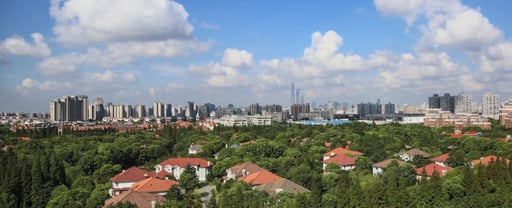
For 8-10 weeks a year, Shanghai has a lovely climate. Bracketing these two 4-5 week islands is a sweltering humid subtropical climate. When it is not steamy hot in the summer it is surprisingly chilly in the winter with snow occasionally blanketing the city if only briefly. The hottest months of the year are July and August while the coldest are January and February. Local regulations limit public spaces to temperatures no lower than 26°C (78°F)... Read More

Everyone’s heard culture shock referred to either in passing or in detail. Initially it’s best to understand culture shock as a natural human reaction to any challenging situation - be it physical or mental. Take any average person and place them in a challenging situation and there are three basic possible reactions: Read More

For seasoned expats that have moved from one assignment to the next, transitions become a way of life. While it may not seem like it to the uninitiated relocating for the first time, there is a method to the madness of moving your life around the world. While it is certainly advisable and useful to do research prior to visiting Shanghai so you can understand the basics that will help orient you within the city, there is simply no substitute for... Read More

Tips for long-haul travelers Moving to Shanghai is going to be an exciting and life-changing experience, not only for what the city and China have to offer, but also for what all of Asia has to offer. Choosing to live on the other side of the world puts you on the doorstep of some of the world’s greatest vacation destinations – think weekend getaways to the beaches of Thailand or shopping trips to Hong Kong and Singapore all in your time zone. Read More
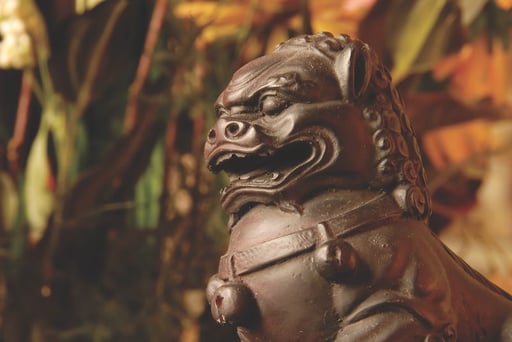
The history of dogs in China goes back so far that historians can only speculate when they were first introduced, but sufficed to say it’s thousands of years. In Imperial China dogs were prized by members of the Imperial Court, specifically the Pekinese breed. Only members of the Imperial court were allowed to own Pekinese dogs and at any time there might be up to 100 of them in the Forbidden City. Read More

What to know and why it’s important to you Upon arriving in China and witnessing what, on first take, appears to be random chaos due to the large amount of humanity everywhere, most are surprised to find out that China is a highly regulated place. And as with other developed countries, people are law abiding for the most part. Developed governments seek an orderly and just society and the improvement of the lives of its citizens and regulations... Read More

For the majority of expats, the affordability of domestic help is a huge plus when moving to Asia. With labour costs being prohibitive at home, many will be experiencing the luxury of having help around the house for the first time. Read More
